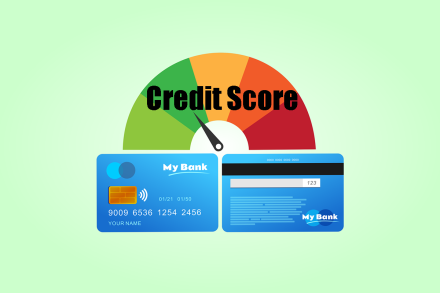Your credit score plays a crucial role in determining the interest rates you receive on loans, from mortgages to car financing. A high credit score can save you thousands of dollars over time by securing lower rates, while a poor score can lead to higher costs and limited borrowing options. If you’re looking to improve your credit score to access better loan rates, this guide will provide practical steps to achieve that goal.
1. Understand Your Credit Score and How It’s Calculated
“Knowing your credit score is the first step toward improving it.”
Credit scores typically range from 300 to 850, with higher scores reflecting better creditworthiness. The major factors influencing your score include:
- Payment history (35%) – On-time payments boost your score, while late payments hurt it.
- Credit utilization (30%) – Using too much of your available credit can lower your score.
- Length of credit history (15%) – Older accounts contribute positively to your score.
- Credit mix (10%) – A mix of different credit types (loans, credit cards, etc.) is beneficial.
- New credit inquiries (10%) – Too many recent applications can lower your score temporarily.
2. Pay Your Bills on Time – Every Time
“Consistency is key when it comes to payment history.”
Late or missed payments are one of the biggest credit score killers, how to improve this? To avoid this:
- Set up automatic payments for credit cards and loans.
- Use reminders or apps to track due dates.
- Pay at least the minimum amount if you can’t pay in full.
3. Lower Your Credit Utilization Ratio
“Using less credit than what’s available can give your score an instant boost.”
Credit utilization is the percentage of your available credit that you’re using. Keeping it below 30% is ideal, and under 10% is even better.
Ways to reduce your utilization:
- Pay off credit card balances regularly.
- Ask for a credit limit increase (as long as you don’t increase spending).
- Spread expenses across multiple cards rather than maxing out one.
4. Avoid Opening Too Many New Accounts at Once
“Each credit application temporarily lowers your score, so apply wisely.”
Hard inquiries from lenders can ding your credit score slightly, to improve & to prevent this:
- Only apply for credit when necessary.
- Space out credit applications over time.
- Pre-qualify for loans before applying to avoid unnecessary hard inquiries.
5. Keep Old Credit Accounts Open
“A long credit history works in your favor.”
Closing old accounts can shorten your credit history and increase your utilization ratio. Instead:
- Keep old credit cards open, even if you don’t use them often.
- Use older cards occasionally to keep them active.
6. Diversify Your Credit Mix
“Having different types of credit can strengthen your score.”
Lenders like to see a healthy mix of revolving credit (credit cards) and installment loans (mortgages, auto loans, etc.). If you have limited credit types:
- Consider a small personal loan or secured credit card to add diversity.
- Avoid opening accounts just for the sake of variety.
7. Dispute Credit Report Errors
“Errors on your credit report can unfairly lower your score, so check regularly.”
Credit report mistakes, such as incorrect late payments or accounts that don’t belong to you, can drag down your score. To fix errors:
- Get free annual reports from AnnualCreditReport.com.
- Dispute inaccuracies with the credit bureaus (Experian, Equifax, TransUnion).
- Follow up to ensure corrections are made.
8. Use Credit-Boosting Tools
“Certain services can help raise your score faster.”
- Experian Boost allows you to add utility and streaming service payments to your credit history.
- Authorized user status on a responsible person’s credit card can help you build credit faster.
9. Be Patient and Consistent
“Improving your credit score takes time, but the rewards are worth it.”
While some changes, like paying down credit card balances, can boost your score quickly, others, such as building a long credit history, take time. Stay consistent, and your efforts will pay off.
Final Thoughts
A strong credit score opens the door to better loan rates, saving you money in the long run. By practicing good financial habits—paying bills on time, keeping balances low, and managing credit responsibly—you can steadily improve your credit score and secure more favorable borrowing terms. Start today, and watch your financial opportunities grow!









